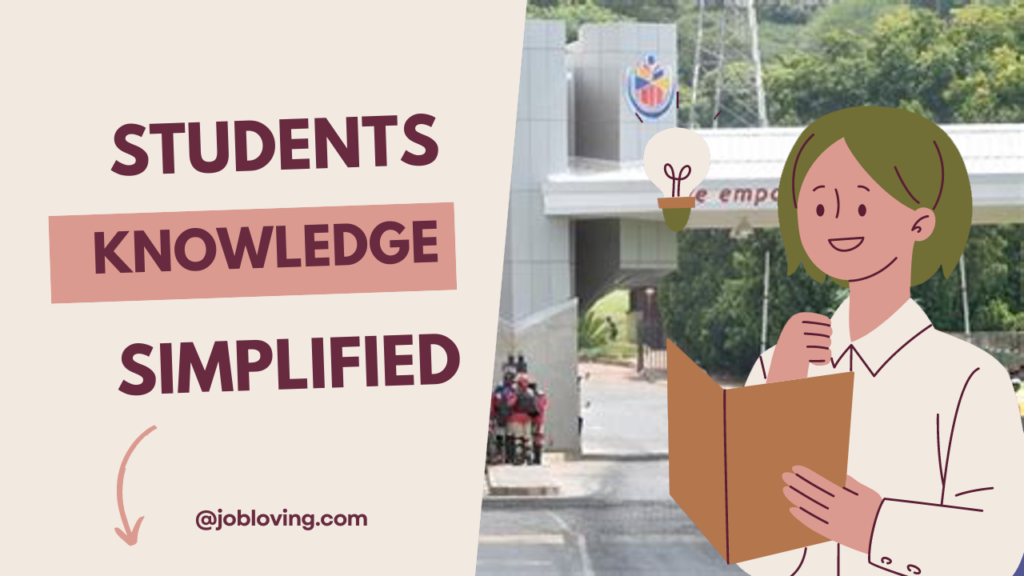Unpacking the Enrollment Landscape of Tshwane University of Technology
Tshwane University of Technology (TUT) stands tall as the largest contact university in South Africa, underscoring its commitment to quality education and student satisfaction. With an impressive enrollment of more than 60,000 students annually, TUT has solidified its reputation as a prominent institution in the realm of higher education. But there’s much more to this dynamic university than just numbers. Let’s delve deeper into what makes TUT a cornerstone of educational excellence.
The Current Student Population
TUT boasts an enrollment figure of approximately 65,000 students, making it a giant in South Africa’s academic ecosystem. This diverse body of scholars is a testament to the university’s ability to attract and retain students from various backgrounds and regions.
- The university experienced a notable peak in enrollment back in 2012, hitting an astonishing 88,078 students. This significant growth reflects the increasing demand for quality education and vocational training.
- Fast forward to 2014, and the first-year applications soared to around 80,000, further showcasing TUT’s appeal to prospective students.
Campus Configurations and Accessibility
TUT’s strategic operation across six urban campuses is designed to enhance accessibility for students. This urban-centric approach allows learners to engage with their local communities, fostering an environment ripe for innovative collaborations and experiential learning.
- The campuses are situated in bustling areas, ensuring students are never far from major industries and job opportunities.
- Each campus specializes in distinct educational areas, accommodating the diverse range of studies offered at TUT.
A Historical Perspective
Founded in 2004 from the merger of three established institutions, TUT transitioned towards a university of technology model, a significant shift in response to the evolving educational landscape.
- This blend of heritage and innovation has broadened the university’s offerings and allowed it to cater to a wider audience.
- The commitment to *vocational education* aligns seamlessly with South Africa’s skills development initiatives, addressing gaps in essential industries.
The Academic Offerings
Diversity is at the heart of TUT’s academic structure. The university presents a tapestry of disciplines within seven faculties, including:
- Arts
- Engineering
- Humanities
- Information and Communications Technology (ICT)
- Management Sciences
- Science
TUT’s academic repertoire is comprehensive, offering everything from advanced diplomas to postgraduate and doctoral degrees.
The Faculty and Staffing Scenario
A robust academic framework is supported by approximately 755 academic staff members who bolster the university’s commitment to education.
- In addition, around 4,800 administrative staff work tirelessly behind-the-scenes to ensure that operations run smoothly, demonstrating a dedication to student support services.
- With a student-to-staff ratio of about 39.6 students for every academic staff member, TUT prides itself on maintaining small groups that foster closer relationships and personalized learning experiences.
Cultural Diversity in Enrollment
TUT’s vibrant community is enhanced by its diverse student body. The gender ratio indicates a slightly higher female population at 53% compared to 47% male, striking a balance that promotes inclusivity.
- Interestingly, international students make up only 2% of the total enrollment, with many learners hailing from neighboring countries such as Botswana, Zimbabwe, and Namibia.
Facilities and Student Life
A quintessential aspect of TUT’s environment is the lively campus life enriched with cultural and academic diversity.
- Among the facilities is the iconic Breytenbach Theatre, which serves as a platform for student training and public performances.
- This space not only nurtures talent but also fosters community engagement, making it a cultural hub.
Commitment to Skills Development
With a focus on vocational education, TUT supports South Africa’s broader initiative to enhance skills development across various sectors.
- The university’s collaborative ties with local industries empower students to gain real-world experience, preparing them for future jobs in a competitive market.
- This strategic alignment with national economic goals emphasizes TUT’s proactive stance in nurturing a skilled workforce.
Impact in the Educational Landscape
TUT’s continuous growth is reflective of its adaptability in crafting programs that resonate with student needs and market demands. Here are a few factors that underline its importance:
- The institution ranks among the top ten universities in South Africa, showcasing its academic reputation and quality.
- TUT’s innovative approach, particularly in fields such as journalism, has garnered international recognition, with its Department of Journalism earmarked by UNESCO as a potential center of excellence in Africa.
Conclusion: A Hub of Opportunities
Tshwane University of Technology represents a dynamic and evolving educational landscape that caters to over 60,000 students annually. Its commitment to providing quality, accessible education lays a strong foundation for future growth and success.
As the largest residential higher education institution in South Africa, TUT not only offers a wealth of academic programs but also fosters a vibrant community that celebrates diversity and cultural enrichment. By maintaining its dedication to technological advancement and vocational training, TUT plays a crucial role in shaping the educational future of South Africa.
From innovative academic offerings to a culturally rich campus life, TUT is a beacon of opportunity, promising a bright future for its students as they embark on their educational journeys.

